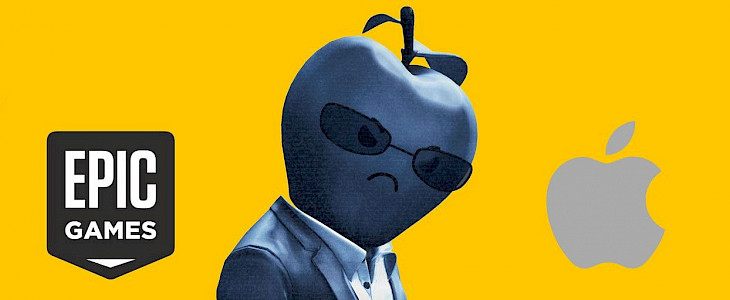
Apple has filed a petition in the Apple vs. Epic Games court dispute, requesting a judge's decision on one of Epic Games' ten charges against it. Apple is requesting a partial judgment on Epic's claim that iOS is an "essential facility" and that it has been unfairly blocked from accessing it via the App Store is unfounded.
Epic's contention, referred to as Count 2 in court filings, is that it has been denied access to iOS, which it says is an "essential facility," because it has been denied access to the App Store.
Apple has been accused of violating Section 2 of the Sherman Act by "illegally denying Epic and other software distributors an essential facility—access to iOS," according to the Count.
Apple asks court to disregard Epic's iOS "essential facility" claim
Owing to Epic's lack of "factual, expert, or legal evidence for its theory of critical facility" and the fact that it has virtually given up on trying to prove it, Apple is asking the judge to step ahead with a decision. Apple also cites evidence from one of Epic's own witnesses, who said during the App Store trial that nothing they claim refers to something that might be considered an "essential facility."
"Epic's experts were silent on whether iOS is a necessary feature or whether Epic has been refused access to the platform. Rather, Epic and other developers are given "access to the tools and permissions for writing iOS apps," according to Dr. Evans' written direct testimony.
"Dr. Evans acknowledged on the stand that he was not expressing any view on anything referred to as an essential facility or anything relevant to an essential facility argument in this case."
According to Apple's court filing, the iOS App Store can be easily reproduced and duplicated, and iOS is not an essential facility, according to the court's description. Apple continues, "essential" means "important," not "best," "most lucrative," or "preferred."
After violating App Store Guidelines in August of last year, Apple pulled Fortnite and denied Epic access to its developer account. Despite Epic's assertion that it was unfairly denied access to an "essential facility," Apple told the court that Epic has access to the App Store as long as it follows the same rules as all other developers.
According to Apple, Epic Games had complete access to the app delivery platform before launching "Project Liberty," Epic's codename for its legal battle with Apple.
"Epic does, without a doubt, have access to the iOS platform. By agreeing to the DPLA, Epic, like all other developers, would gain "access to the tools and permissions for writing iOS applications," as well as the ability to distribute such apps via iOS. Prior to Project Liberty, Epic specifically distributed the software via iOS and the App Store. Millions of other programmers feel the same way."
According to Apple, Epic Games' real point is that it does not like the terms and conditions that developers must meet on the site, not that it is being refused access to the App Store and iOS illegally.
The Epic Games vs. Apple trial began on May 3, and Apple has requested that its motion for a partial judgment be entered on May 24 or as soon as the court has the opportunity to hear it.





